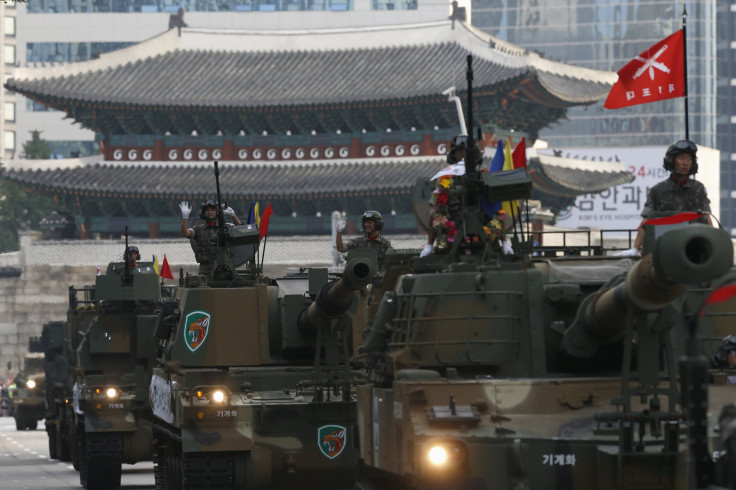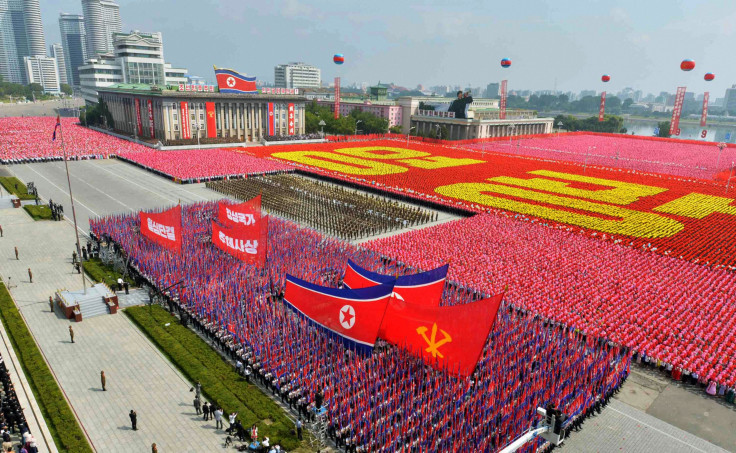North Korea War Threats? Massive Military Parade And Military Demonstrations Planned To Stabilize Country After Purges

In response to public disruptions that may have destabilized the ruling elite of North Korea, the country is planning a huge military parade and a military demonstration to bring back confidence in the country's ruler, Kim Jong-Un. Kim has ordered an estimated 16 executions of senior North Korean government officials in just this year alone and an estimated 70 officials since he took over control of the country from his late father in 2011.
The purges have sparked increased public demonstrations against the leader and group defections from the country. North Korea, a nuclear power, has long been experimenting with long-range missile capabilities. Earlier this week, it was discovered that the country is expanding its uranium enrichment capacity and had threatened to turn South Korea into a "sea of fire" because of propaganda leaflets flown into the country.
This would not by any means be the first military parade staged by the country, which is known for its grandiose celebrations of its leader and the government. The events can feature giant missiles rolled through the capital city, Pyongyang, jet fighters and helicopters flying overhead, chanting soldiers and dancing. The country has also tested missile capabilities in what has been seen as a threat to neighboring countries.

On Friday, North Korea announced that they would attack Seoul if activists in the country didn't stop blowing leaflets critical of the the North Korean government across the border. South Korea has been particularly critical of North Korea recently, accusing the country of laying landmines that maimed soldiers along the demilitarized zone between the two countries.
South Korea has been trying to stop the leaflets from flying over the border, but activists have been scrappy, choosing several times during the night to float them over. North Korea called the leaflets blown over the border an "open declaration of war."
South Korean analysts have said recently that Kim is a bigger threat to their country than his father was during his tenure as the leader.
© Copyright IBTimes 2024. All rights reserved.






















